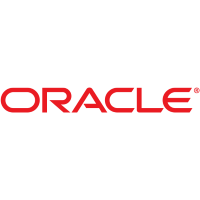
Kinnevik AB
STO:KINV B


| US |

|
Johnson & Johnson
NYSE:JNJ
|
Pharmaceuticals
|
| US |

|
Berkshire Hathaway Inc
NYSE:BRK.A
|
Financial Services
|
| US |

|
Bank of America Corp
NYSE:BAC
|
Banking
|
| US |

|
Mastercard Inc
NYSE:MA
|
Technology
|
| US |

|
UnitedHealth Group Inc
NYSE:UNH
|
Health Care
|
| US |

|
Exxon Mobil Corp
NYSE:XOM
|
Energy
|
| US |

|
Pfizer Inc
NYSE:PFE
|
Pharmaceuticals
|
| US |

|
Palantir Technologies Inc
NYSE:PLTR
|
Technology
|
| US |

|
Nike Inc
NYSE:NKE
|
Textiles, Apparel & Luxury Goods
|
| US |

|
Visa Inc
NYSE:V
|
Technology
|
| CN |

|
Alibaba Group Holding Ltd
NYSE:BABA
|
Retail
|
| US |

|
JPMorgan Chase & Co
NYSE:JPM
|
Banking
|
| US |

|
Coca-Cola Co
NYSE:KO
|
Beverages
|
| US |

|
Walmart Inc
NYSE:WMT
|
Retail
|
| US |

|
Verizon Communications Inc
NYSE:VZ
|
Telecommunication
|
| US |

|
Chevron Corp
NYSE:CVX
|
Energy
|
Utilize notes to systematically review your investment decisions. By reflecting on past outcomes, you can discern effective strategies and identify those that underperformed. This continuous feedback loop enables you to adapt and refine your approach, optimizing for future success.
Each note serves as a learning point, offering insights into your decision-making processes. Over time, you'll accumulate a personalized database of knowledge, enhancing your ability to make informed decisions quickly and effectively.
With a comprehensive record of your investment history at your fingertips, you can compare current opportunities against past experiences. This not only bolsters your confidence but also ensures that each decision is grounded in a well-documented rationale.
Do you really want to delete this note?
This action cannot be undone.

| 52 Week Range |
62.92
93.04
|
| Price Target |
|
We'll email you a reminder when the closing price reaches SEK.
Choose the stock you wish to monitor with a price alert.

|
Johnson & Johnson
NYSE:JNJ
|
US |

|
Berkshire Hathaway Inc
NYSE:BRK.A
|
US |

|
Bank of America Corp
NYSE:BAC
|
US |

|
Mastercard Inc
NYSE:MA
|
US |

|
UnitedHealth Group Inc
NYSE:UNH
|
US |

|
Exxon Mobil Corp
NYSE:XOM
|
US |

|
Pfizer Inc
NYSE:PFE
|
US |

|
Palantir Technologies Inc
NYSE:PLTR
|
US |

|
Nike Inc
NYSE:NKE
|
US |

|
Visa Inc
NYSE:V
|
US |

|
Alibaba Group Holding Ltd
NYSE:BABA
|
CN |

|
JPMorgan Chase & Co
NYSE:JPM
|
US |

|
Coca-Cola Co
NYSE:KO
|
US |

|
Walmart Inc
NYSE:WMT
|
US |

|
Verizon Communications Inc
NYSE:VZ
|
US |

|
Chevron Corp
NYSE:CVX
|
US |
This alert will be permanently deleted.
Kinnevik AB
Nestled in the heart of Sweden, Kinnevik AB stands as a testament to the evolution of investment firms, molding its journey over decades from a traditional holding company into a dynamic force in the world of modern investment. Founded in 1936 by the diligent and foresightful Stenbeck family, Kinnevik originally concentrated on Nordic industrial enterprises. As its story unfolded, the company embraced change, riding the ripples of the digital revolution. The firm's portfolio began to reflect a shift towards more innovative and high-growth sectors, focusing on technology, telecommunications, and e-commerce. Kinnevik is not just a passive investor; it actively fosters and nurtures its investments, sometimes taking significant ownership stakes and engaging in board-level decision-making to cultivate value creation.
The company's ability to generate wealth lies in its strategic approach to investment. By targeting sectors poised for disruption and growth, Kinnevik ensures its portfolio is teeming with potential. Its revenue model is primarily based on capital appreciation—recognizing the value growth of its investments over time—and the occasional strategic divestment. This involves a careful curation of its holdings, aligning them with prevailing economic trends and future outlooks. Kinnevik excels in identifying and steering startups on successful trajectories, often reaping sizable rewards when these businesses reach maturity. Moreover, Kinnevik's savvy in reallocating capital from matured, slower-growth investments to those fledgling companies brimming with future promise creates a cycle of sustained revenue generation. Through this strategic orchestration, Kinnevik not only retains its edge as a key player in global investment but also ensures a robust and forward-looking financial portfolio.

Nestled in the heart of Sweden, Kinnevik AB stands as a testament to the evolution of investment firms, molding its journey over decades from a traditional holding company into a dynamic force in the world of modern investment. Founded in 1936 by the diligent and foresightful Stenbeck family, Kinnevik originally concentrated on Nordic industrial enterprises. As its story unfolded, the company embraced change, riding the ripples of the digital revolution. The firm's portfolio began to reflect a shift towards more innovative and high-growth sectors, focusing on technology, telecommunications, and e-commerce. Kinnevik is not just a passive investor; it actively fosters and nurtures its investments, sometimes taking significant ownership stakes and engaging in board-level decision-making to cultivate value creation.
The company's ability to generate wealth lies in its strategic approach to investment. By targeting sectors poised for disruption and growth, Kinnevik ensures its portfolio is teeming with potential. Its revenue model is primarily based on capital appreciation—recognizing the value growth of its investments over time—and the occasional strategic divestment. This involves a careful curation of its holdings, aligning them with prevailing economic trends and future outlooks. Kinnevik excels in identifying and steering startups on successful trajectories, often reaping sizable rewards when these businesses reach maturity. Moreover, Kinnevik's savvy in reallocating capital from matured, slower-growth investments to those fledgling companies brimming with future promise creates a cycle of sustained revenue generation. Through this strategic orchestration, Kinnevik not only retains its edge as a key player in global investment but also ensures a robust and forward-looking financial portfolio.
NAV Decline: Net asset value (NAV) fell 8% in SEK terms and 2% in constant currencies to SEK 36.2 billion, mainly due to currency headwinds and lower public market multiples.
Strong Cash Position: Kinnevik ended the quarter with SEK 10.5 billion in net cash, leaving it well positioned for future investments or share buybacks.
Portfolio Adjustments: The company divested three noncore financial services investments, releasing capital and continuing to concentrate the portfolio on higher conviction sectors.
Core Company Growth: Core portfolio companies grew revenues by over 40% on average and improved EBITDA margins by 5 percentage points, in line with expectations.
Transcarent Acquisition: Kinnevik participated in Transcarent’s $621 million acquisition of Accolade, with the resulting valuation of Transcarent nearly doubling in dollar terms, though still marked conservatively.
Macro Uncertainty: Management cautioned that ongoing global uncertainty could hurt valuations and performance, but stressed optimism for long-term value creation.
Board Changes: Cristina Stenbeck has been proposed as the new Chairman, rejoining the board, along with three other new proposed members.








































